TABLE OF CONTENTS
Between 120 mm and 140 mm fans, which case fan size is better for you?
That’s the question I’m hoping to answer with this article, by walking you through everything you need to know about these two popular form factors.
Let’s get into it!
Understanding Case Fan Sizes
As a general rule of case fans, understand that they’re all measured by the size of the square-shaped fan enclosure: specifically, the length of one of those sides.
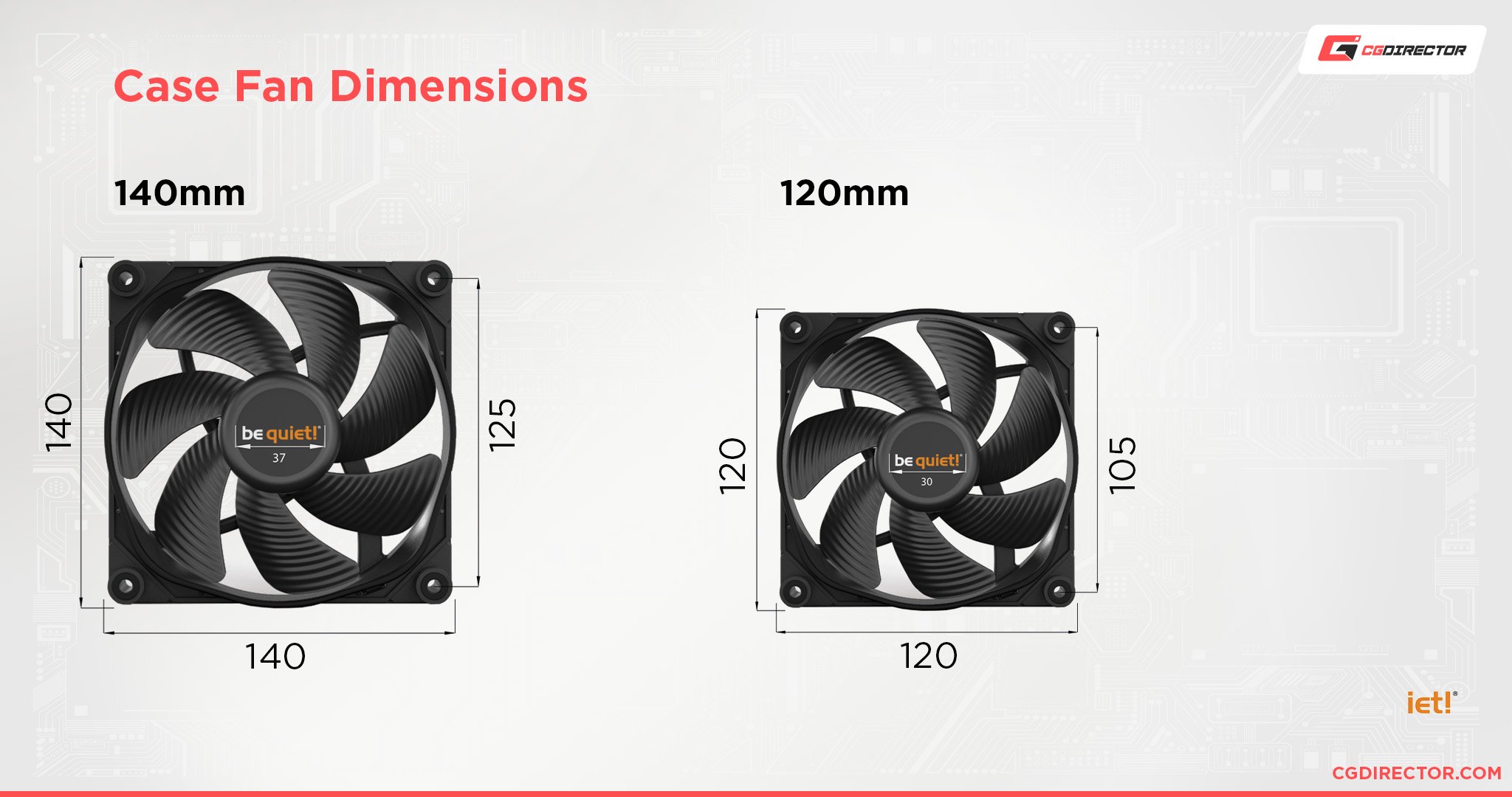
So a 120 mm fan may sound like it isn’t particularly large, but it’s about the size of an average adult’s palm.
This is also why a 140 mm case fan can sound and look so similar but still have such different characteristics- that extra 20 mm of surface area on each side adds up.
120 mm Case Fans
120 mm case fans are the most common case fan size on the market and are compatible with the widest range of builds.
Even larger PC cases that have plenty of room for larger fan sizes will still support mounting 120 mm fans, and many consumers default to buying a 120 mm case fan as a default option, even if their case may actually support a larger fan size.
This doesn’t always just come down to familiarity, either, as 120 mm case fans (in general) trend lower in price than their more specialized 140 mm or larger counterparts.
140 mm Case Fans
140 mm case fans are the second-most-common case fan size on the market but tend to cost a little more and aren’t as widely-compatible as 120 mm case fans. Namely due to the rise of HTPC, Mini ITX, and even some Micro ATX cases, 140 mm case fans aren’t always compatible if you plan to build an SFF (Small Form Factor) PC build.
However, the larger fan size does come with its own benefits, and with most Micro ATX and ATX cases, a 140 mm case fan in the same place as a 120 mm case fan can provide better results.
Other Case Fan Sizes
Besides the two big popular case fan sizes, it’s also worth considering that there are other, less conventional fan sizes out there.
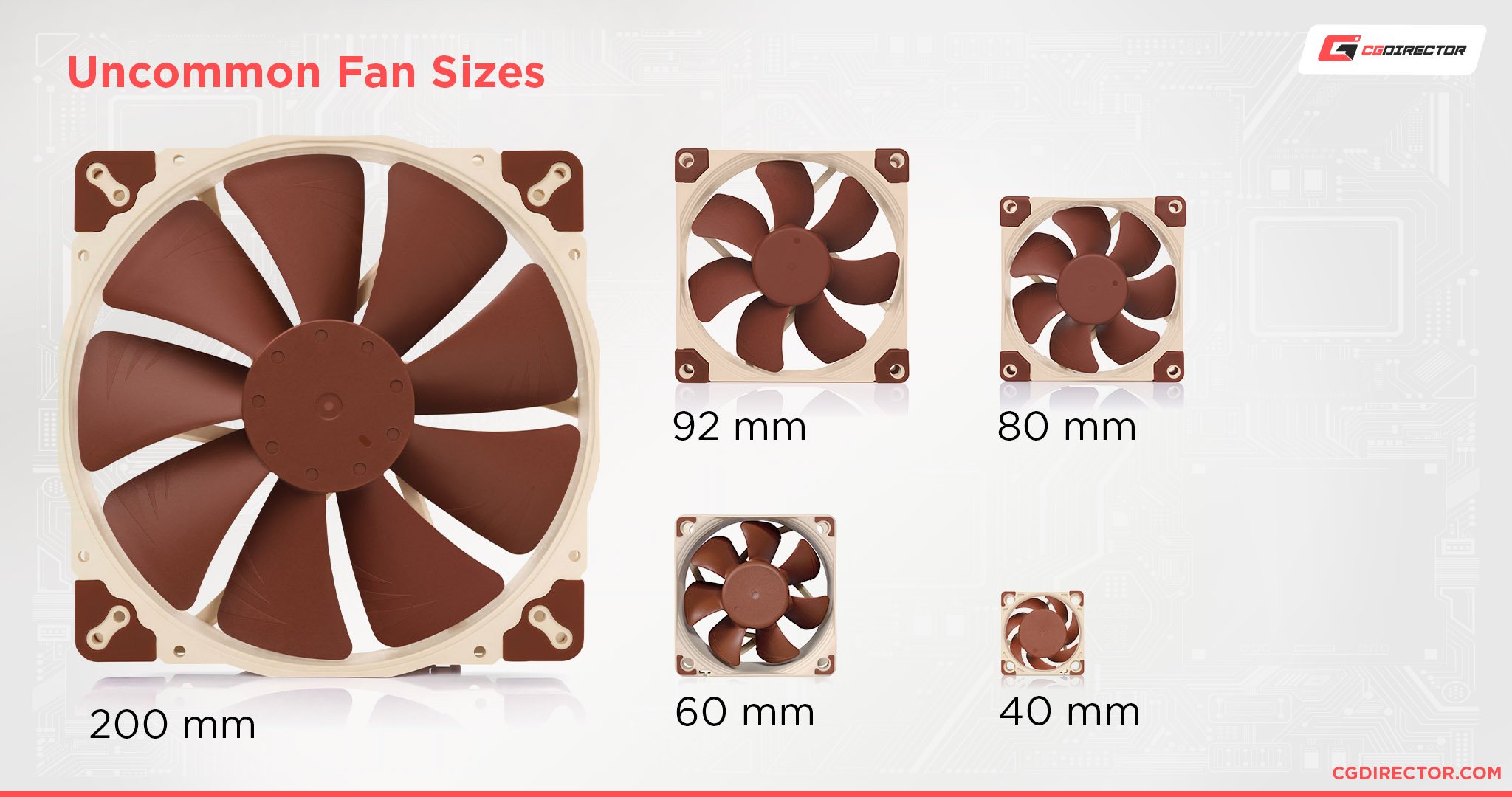
For some SFF cases (or particularly beefy and bold ATX cases), for instance, 200 mm fans are becoming more common as a way to massively ramp up airflow without needing a large number of 120 or 140 mm fan mounts.
On the opposite end of the spectrum, some users may also find themselves pushed toward fan sizes of 80 mm and lower.
These are ideal for super low-profile builds and are sometimes even mounted in places that weren’t actually meant to be used for fans. (ie, a passive exhaust vent on a giant VCR being used as an 80 mm fan mount after the internals have been gutted and replaced with a Mini ITX PC).
Now that you have a decent understanding of various case fan sizes, let’s put our two contenders head-to-head.
Why 120 mm Fans Are Best
Ubiquity and Compatibility
The first and most obvious benefit of a 120 mm fan is that it’s most likely going to be compatible with your build of choice.
It is extremely rare for even the smallest HTPC or Mini ITX cases to NOT have one or two 120 mm fan mounts, and even on large Extended Tower cases, you can still mount plenty of 120 mm fans.
Lower Cost
Another factor is cost. Even if you can fit a 140 mm fan in the same slot, sometimes consumers prefer the savings that they get by opting for 120 mm instead.
We wouldn’t necessarily recommend this as the deciding factor if you have 140 mm as an option, but it’s still worth noting as a legitimate pro in favor of 120 mm fans.
Why 140 mm Fans Are Best
Quieter Operation
So it turns out that if you take two fans side-by-side and run them at the same high RPM, the smaller one is actually going to be louder.
If you’re hoping to reduce the noise levels generated by your PC, a bunch of smaller fans is probably not what you’re going to want.
In this case, 140 mm fans are considerably quieter than their 120 mm counterparts when running at the same RPM.
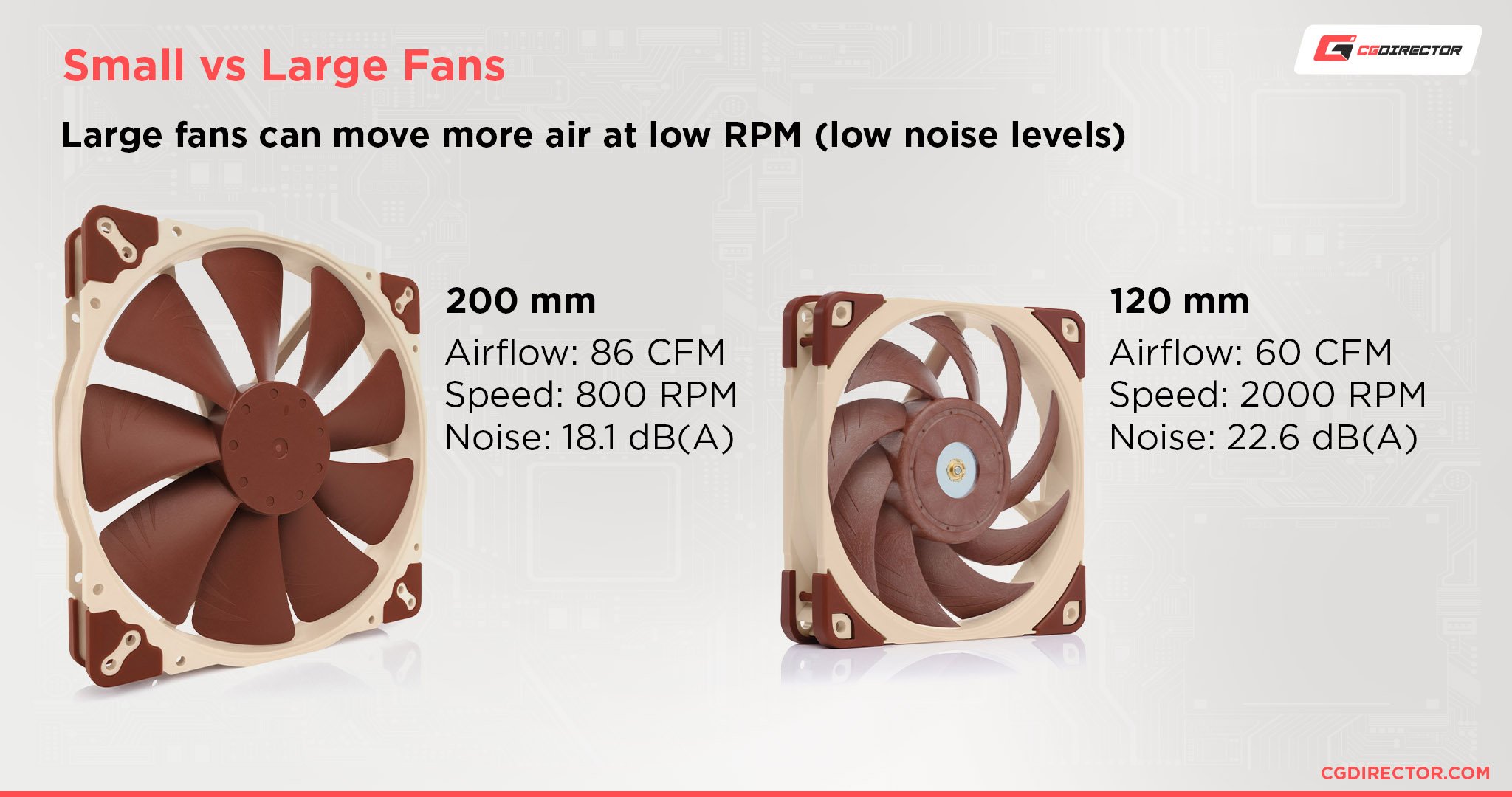
This usually means you can get the same or better cooling at a lower noise level, especially if you choose fans optimized for quiet operation.
More Cooling Power
The larger surface area provided by 140 mm fans also allows them to have more overall cooling power, at least when placed side-by-side with a like-for-like 120 mm fan.
There is some nuance to this point, and it will depend on what fans you’re actually buying.
As a general rule, though, a larger fan is going to push more air, quieter, than a smaller fan running at the same speed.
How To Choose
Choose A 120 mm Fan if…
- You’re building in an HTPC or Mini ITX case
- In a larger case, if the price savings are worth the trade-off over getting 140 mm
- You want to carry over your fans to a new PC, eventually
- If you have a cluttered Case and need high static pressure
Choose A 140 mm Fan if…
- You want quieter operation from your fans (especially for large air coolers or radiators)
- You’re building in a compatible Micro ATX case
- You’re building in a standard ATX or extended ATX case
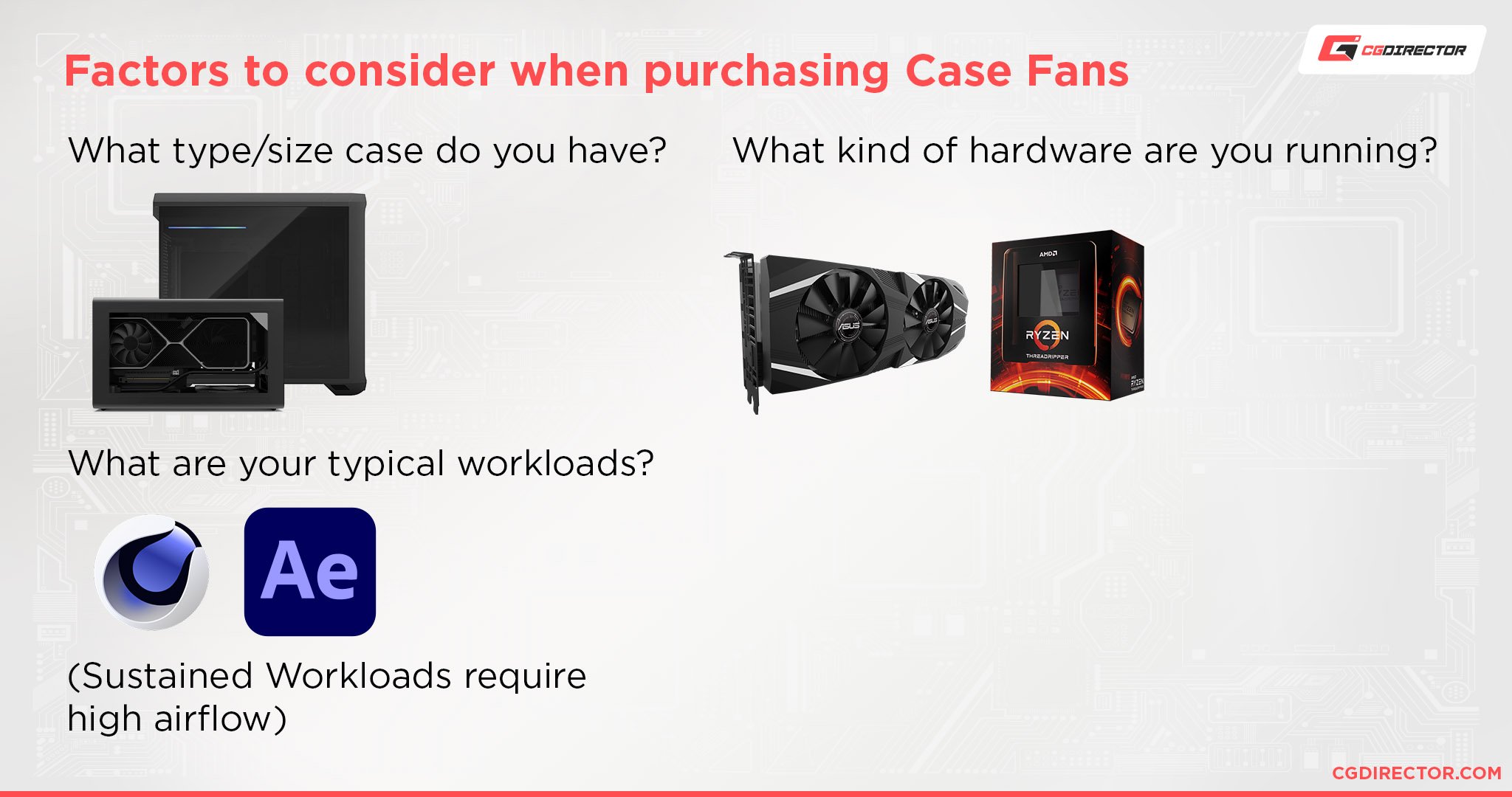
FAQ
How Many Case Fans Do I Need For My PC?
Well, it depends, and we’ve actually gone over this pretty extensively elsewhere on the site.
In general, though, you want at least 3. 2 for intake, 1 for exhaust.
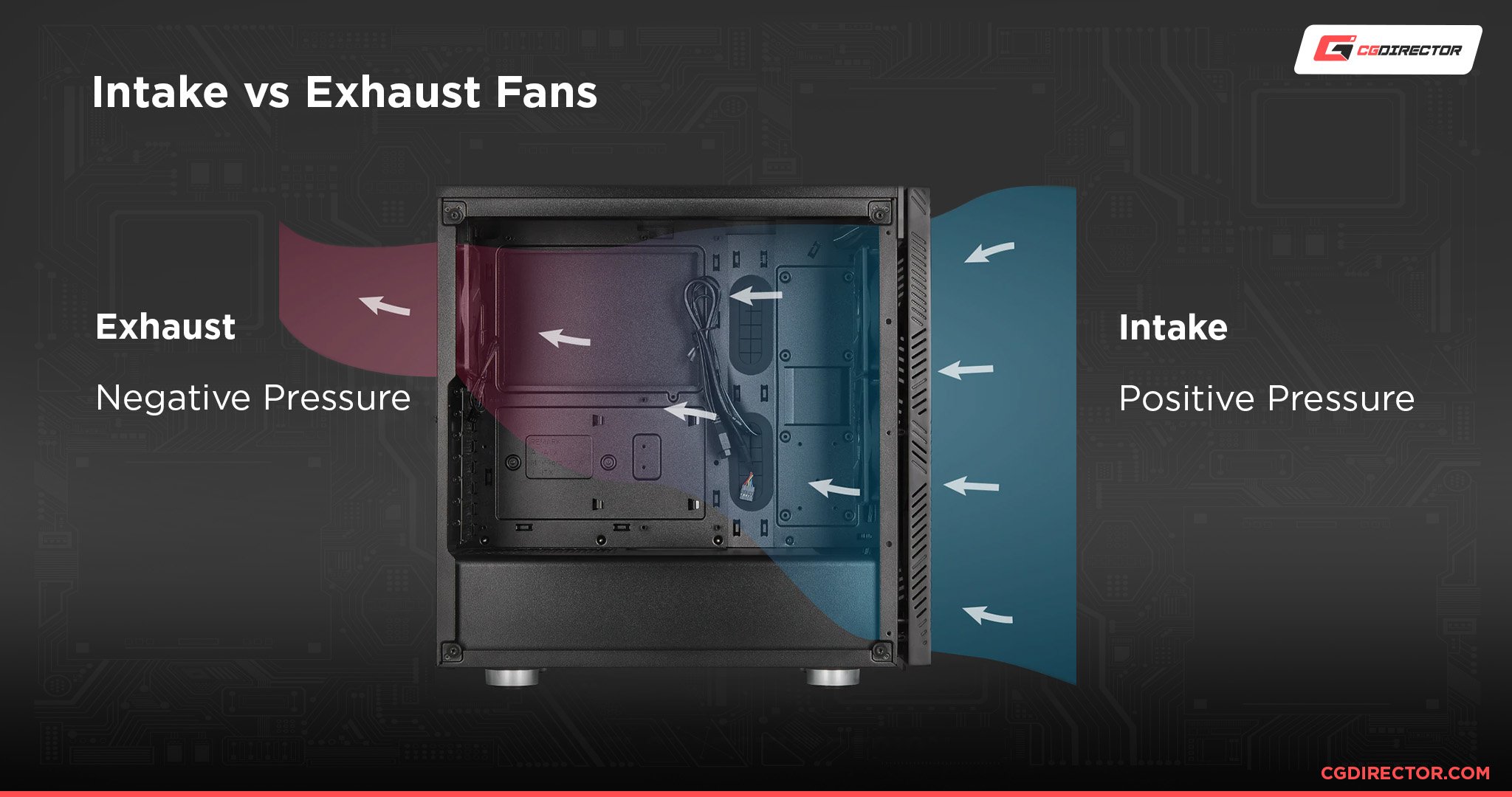
As you get more case fans, you want to maintain the rule of having more intake than exhaust to maintain an ideal positive pressure configuration.
With a positive pressure configuration, you’ll minimize dust buildup inside your PC while still enjoying the best airflow.
Should I Consider A Different Fan Size For My Case?
Well, if your case is compatible with both 120 mm and 140 mm fans, you’ll generally want to get the 140 mm.
If your case is compatible with 200 mm fans, however, you’ll most likely want to use those slot(s) where they’re available, as cases with 200 mm fan mounts are often optimized for said 200 mm fans.
If your case or mod project is too small for even a 120 mm fan, you’ll want to look into 80 mm and smaller case fan sizes.
However, you may not get the same cooling results you would expect from such small fans, so be sure to build with those thermal limitations in mind. Might I recommend a blower-style graphics card for SFF PC builders?
What Are The Best Case Fans For My PC?
Last but not least, where can you find the best case fans for your PC?
Well, besides that pretty link I just placed to a more detailed breakdown on exactly that, I’m going to plug a few recommendations from that article right here for your convenience.
For 120 mm fan users, I heartily recommend the Noctua NF-P12 redux. This is a 120 mm case fan with full support for PWM (fan controls) and speeds of up to 1700 RPM.
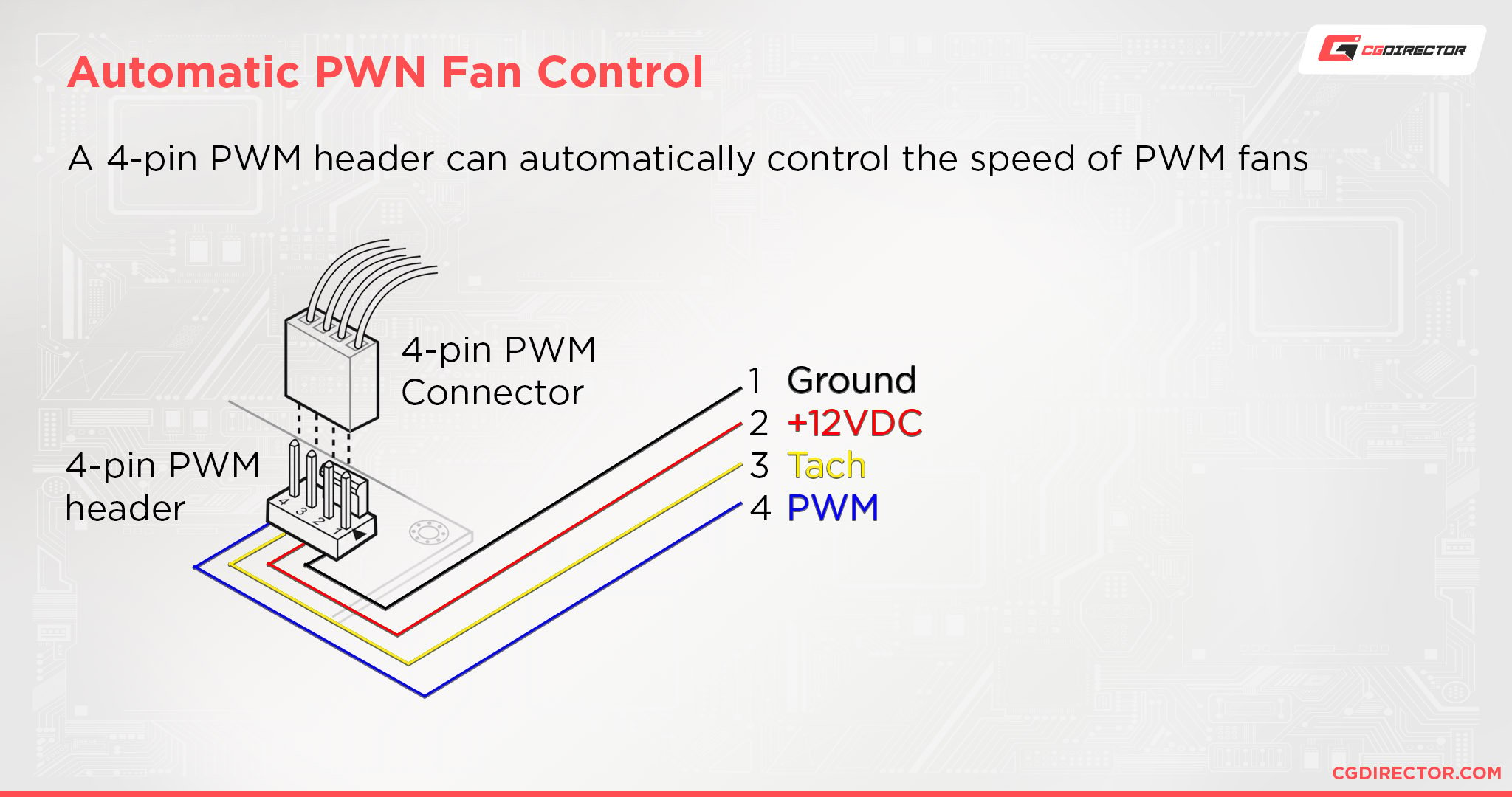
It’s balanced for both high airflow and high static pressure, which means it should work well mounted just about anywhere inside your PC, even on a cooler.
For 140 mm fan users, I recommend the be quiet! Silent Wings 3. This fan is a 140 mm case fan with PWM support that supports speeds of up to 1600 RPM.
As the branding implies, it’s also extremely quiet when under load, making it ideal for use with liquid cooling radiators or just as quiet case fans in general. It leans a bit more toward static pressure for use with coolers but should work just fine as an intake or exhaust, too.
Over To You
And that’s it, for now! Do you have any lingering questions not answered by this article that you don’t think are covered by one of the others linked? Just want some input on a 120 mm or 140 mm fan you have your eyes on buying? Comment below or let us know in our expert forum!
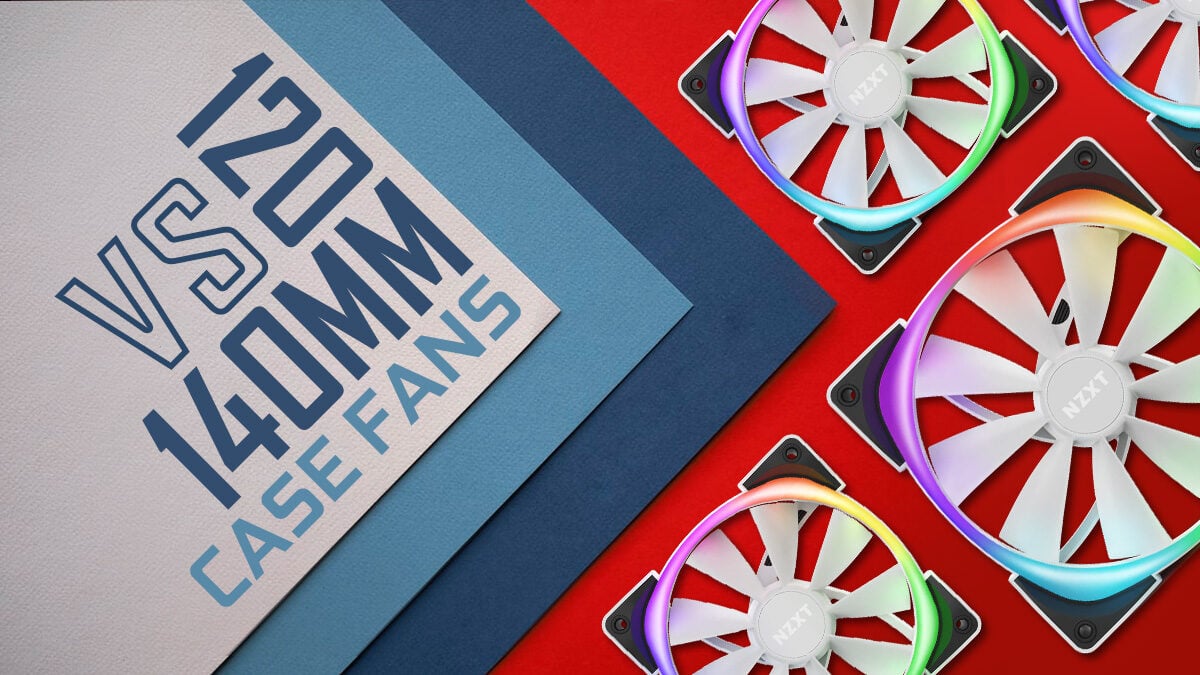
![Where Do You Connect PC Fan PWM Cables To? [Beginner’s Guide] Where Do You Connect PC Fan PWM Cables To? [Beginner’s Guide]](https://www.cgdirector.com/wp-content/uploads/media/2023/12/Where-Do-PWM-Cables-Go-Beginners-Guide-Twitter-1-594x335.jpg)
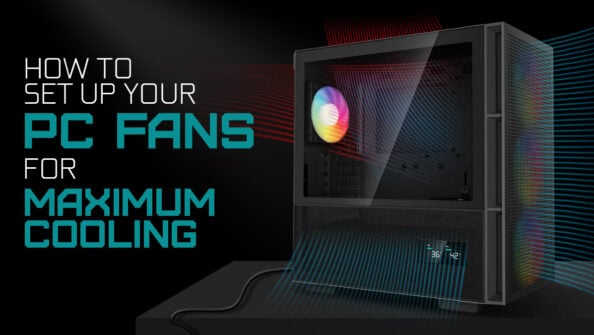
![What Side Should The Heatsink Fan Go On? [CPU Cooler Push or Pull] What Side Should The Heatsink Fan Go On? [CPU Cooler Push or Pull]](https://www.cgdirector.com/wp-content/uploads/media/2023/08/What-Side-Should-The-Heatsink-Fan-Go-On-CPU-Cooler-Push-or-Pull-Twitter-594x335.jpg)
![3-Pin vs 4-Pin PC/Case Fans Compared [Differences & Which you’ll need] 3-Pin vs 4-Pin PC/Case Fans Compared [Differences & Which you’ll need]](https://www.cgdirector.com/wp-content/uploads/media/2023/03/3-Pin-vs-4-Pin-Fans-Twitter-594x335.jpg)

0 Comments